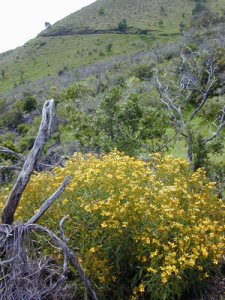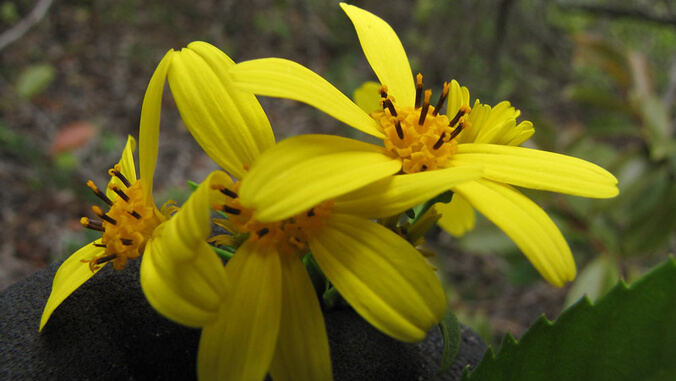
A team of researchers led by a biology professor at the University of Hawaiʻi at Hilo was recently awarded $1.3 million by the National Science Foundation (NSF) to study genetic changes underlying adaptive evolution in flowering plants in Hawaiʻi, specifically genus Bidens from Hawaiʻi, a Hawaiian flowering plant in the daisy family Asteraceae.

Matthew Knope, associate professor of biology at UH Hilo, is the lead principal investigator of “Evolutionary and functional genomics of Hawaiian Bidens: determining the genetic basis of phenotypic trait diversification in a rapid adaptive radiation.” The other principal investigators are Daniel Jones of Auburn University and Christopher Muir of the University of Wisconsin-Madison.
Their research combines genomics, developmental biology, ecology and physiology to understand how new traits evolve in a rapidly diversifying endemic lineage of flowering plants—koʻokoʻolau (genus Bidens).
The project will generate new genome assemblies and identify the genetic and developmental changes responsible for leaf, fruits, seed and flower trait evolution. The scientists expect to gain insights to the genetic changes responsible for rapid evolutionary diversification in Hawaiʻi and beyond.

This project will offer inter-disciplinary evolutionary training to undergraduates, graduate students, and postdoctoral researchers, and underrepresented groups, preparing them to contribute to scientific research, education and technological advancements.
“This collaborative research is only made possible by combining the complementary expertise of the three labs involved and the generous support of the National Science Foundation,” said Knope. “It is a great honor to get to work on understanding how our native Hawaiian flora has evolved to be what it is today and to help conserve it into the future.”
The project received a total award of $1,334,718 from the NSF Division of Environmental Biology Core Program on Systematics and Biodiversity Science, and begins in January 2025.
—By Susan Enright
Read more at UH Hilo Stories.


